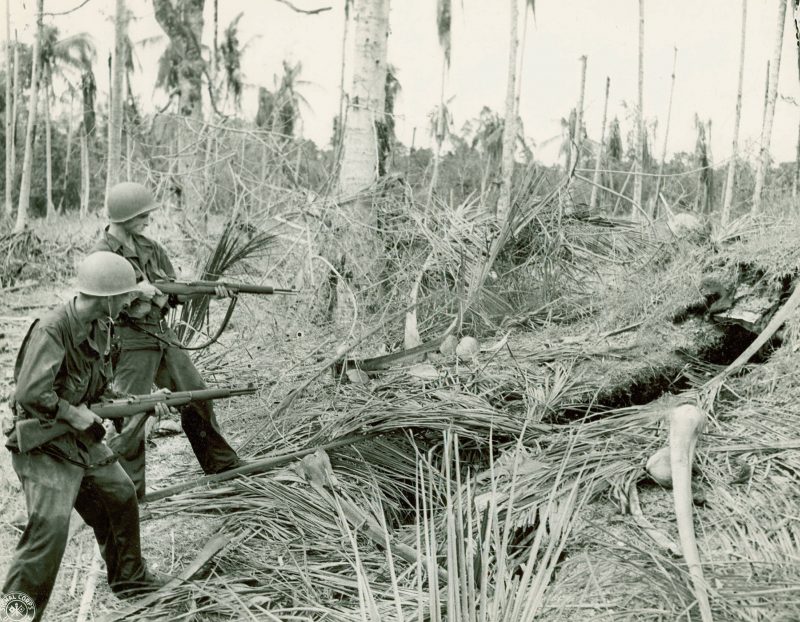In October of 2011, the Defense POW/MIA Accounting Agency was contacted by an Australian citizen in Papua New Guinea who drew their attention to possible American G.I. remains found in the jungle near the north shore in the east of the country.
The lead was investigated, the remains exhumed, and the identity of the two bodies found in the grave confirmed. This year, Army Pvt. Earl J. Keating, 28, and Army Pvt. John H. Klopp, 25 – both of New Orleans – were returned to the United States for burial. Keating was laid to rest in New Orleans on May 28th, with some of his remains sharing a grave in Arlington National Cemetery with Klopp, who also has his own grave there.
Both men were serving in the 126th Infantry Regiment, 32nd Infantry Division.
Throughout 1941, the 126th were training for war in Europe. However, in March of 1942, they were instead told they’d be shipping out to Australia. After months of travel, being moved from city to city within Australia, the 126th was again reassigned to fight the Japanese in New Guinea and arrived in Port Moresby, on the Island’s Southern shore.
After setting up camp and receiving little to no training in jungle warfare, the 126th were sent to engage the Japanese beachheads on the north side of the island. The 2nd Battalion marched over 200 km through the jungle, while the rest of the regiment was airlifted to forward positions.
In the Battle of Buna-Gona, which lasted from November 16th 1942 until January 22nd 1943, the Japanese were finally pushed off the beaches. The 126th lost many men from the fighting, but many more from disease. By the end of the Battle, the 3,050 enlisted fighting men of the 126th were reduced to 579.
In December 1942, Keating and Klopp were assigned to reinforce the regiment. The bulk of their unit was placed along a jungle track between Soputa – a village held by the U.S. and Australian armies – and Sanananda, a coastal town held by the Japanese.
In December, the Japanese had three strongly held positions along this track. Keating and Klopp were stationed with the regiment’s anti-tank unit which, along with another company, held a roadblock, named Huggins Roadblock, between two of these positions.
After an unsuccessful assault by the 126th at Huggins on December 5th, the defenders counter-attacked. The men now defending the roadblock fought hard and repelled the Japanese soldiers, but suffered heavy losses. Among the fallen were Keating and Klopp. Their comrades buried the two men together not far from their position.
Because of the wet, difficult terrain, their resting place was lost, remaining untouched for almost 70 years. Now, at last, they have returned home.
Both Keating and Klopp were awarded the Purple Heart and Bronze Star for their service. The two men gave their lives in one of the most desperate struggles for U.S. troops in the Pacific in World War II.
By Colin Fraser for War History Online
